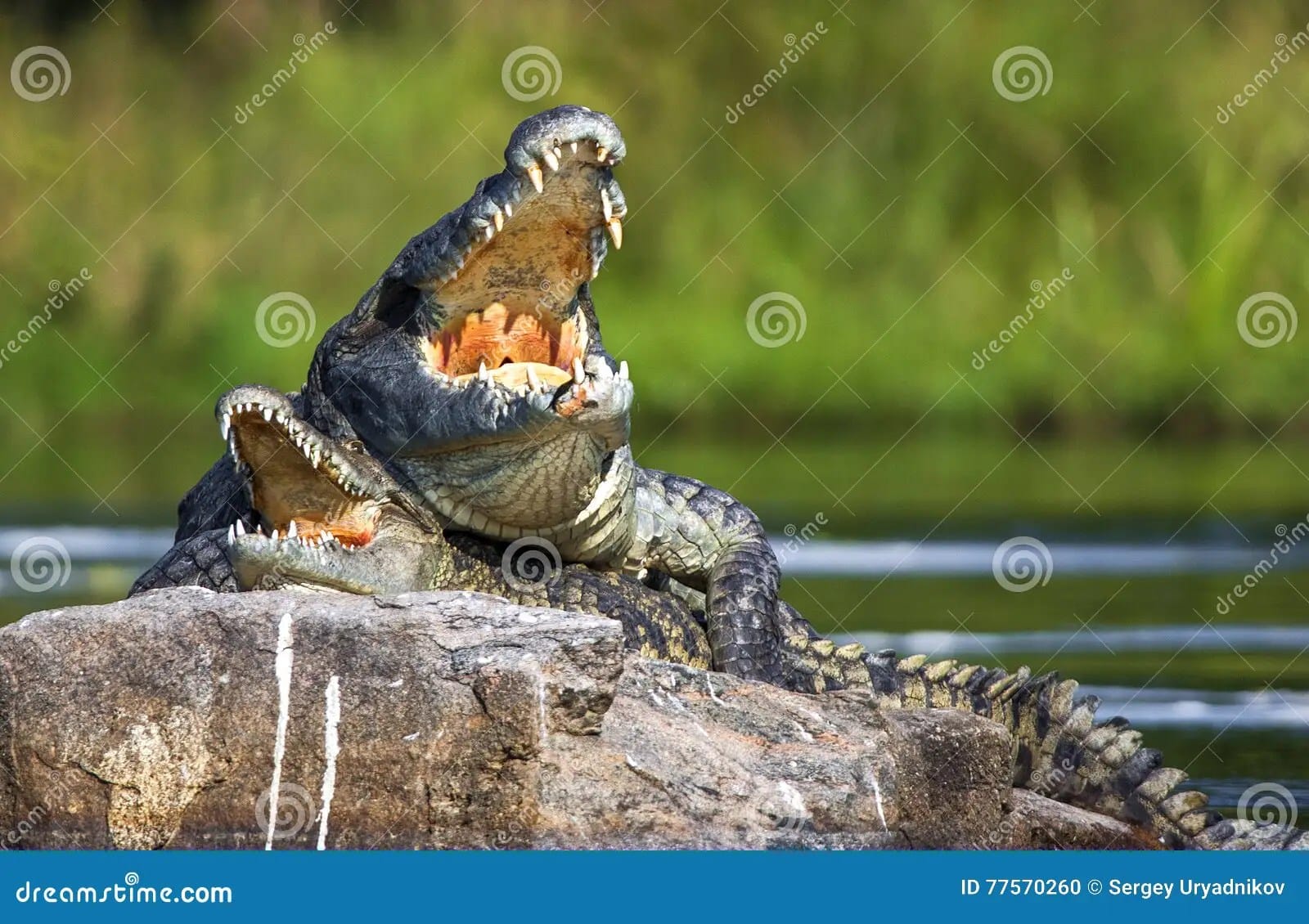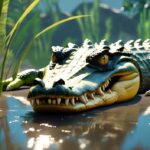Alligators and crocodiles, with their prehistoric presence and toothy grins, often spark a sense of wonder and, let’s be honest, a healthy dose of fear. Their visual similarities have led many to ponder: could these apex predators interbreed and create a hybrid “crocogator”? Despite captivating the imagination, the reality is grounded in science. Let’s delve into the fascinating world of genetics and evolution to understand why an alligator-crocodile love story is highly improbable.
Why Alligators and Crocodiles Don’t Mix: Genetics 101
While alligators and crocodiles share a common ancestor millions of years in the past, their evolutionary paths diverged, leading to distinct genetic makeups that act as formidable barriers to interbreeding. Think of it like trying to combine puzzle pieces from completely different puzzles–they just won’t fit!
Here’s a closer look at the science:
Chromosome Count: Alligators typically possess 32 chromosomes, while crocodiles boast 34. This difference might seem insignificant, but in the world of genetics, it’s a dealbreaker. Chromosomes are the building blocks of life, containing the genetic instructions that determine everything from an organism’s physical traits to its biological processes. For successful reproduction and the creation of viable offspring, chromosome numbers must align.
Hybrid Sterility: Even if, hypothetically, an alligator and crocodile egg could combine, the resulting offspring would likely be infertile. This means they would be incapable of reproducing themselves, preventing the continuation of a hybrid lineage. This phenomenon is observed in other animal hybrids, such as mules (horse-donkey hybrids), highlighting the complex and delicate balance required for successful reproduction.
No Scientific Evidence: It’s important to emphasize that there are no scientifically documented cases of successful alligator-crocodile hybridization. While captivating stories of “crocogators” might surface from time to time, they lack the rigorous evidence required by the scientific community to be considered credible.
Beyond Genetics: Differences in Habitat and Behavior
Genetic incompatibility isn’t the only obstacle to alligator-crocodile romance. These reptiles have evolved distinct physical characteristics, behaviors, and habitat preferences that further minimize the likelihood of interbreeding in the wild.
Freshwater vs. Saltwater: Alligators primarily inhabit freshwater environments like swamps, lakes, and rivers. Crocodiles, on the other hand, have a higher tolerance for saltwater and are often found in coastal areas, estuaries, and even open ocean environments. This difference in habitat preference makes encountering each other for potential mating highly improbable.
Snout Shape and Teeth: A trained eye can easily distinguish between alligators and crocodiles based on their snout shape and tooth alignment. Alligators have a wider, rounded snout, while crocodiles sport a more pointed, V-shaped snout. When crocodiles close their mouths, their lower teeth are prominently displayed, while an alligator’s lower teeth remain hidden. These physical distinctions reflect adaptations to their respective diets and feeding strategies.
Debunking the Hybrid Myth: What About Other Crocodile Species?
While alligators and crocodiles cannot interbreed, hybridization within the crocodile family is possible, though often with limitations. For example, the American crocodile ( Crocodylus acutus ) and the Cuban crocodile ( Crocodylus rhombifer ) are closely related enough to produce offspring. However, these instances are more akin to distant cousins producing offspring rather than the creation of a completely new species. Importantly, offspring from these interspecies pairings are often infertile, further highlighting the genetic barriers that exist even within the crocodile family.
The Future of Crocodilian Research: Could Genetic Engineering Change the Game?
Advancements in genetic engineering have opened up a world of possibilities, prompting some to question: could we one day see a “crocogator” created in a lab? While theoretically possible in the future, it’s crucial to consider the ethical implications of such endeavors. Manipulating the genetic makeup of animals, especially those with long evolutionary histories and important roles in their ecosystems, raises a host of ethical concerns.
The focus of scientific research should prioritize understanding and conserving these fascinating creatures rather than attempting to create hybrid species that could have unforeseen and potentially detrimental consequences.
Exploring Further: The World of Crocodilian Evolution
The impossibility of alligator-crocodile hybrids offers a captivating glimpse into the power of evolution. Over millions of years, these ancient reptiles have adapted and diversified to thrive in unique ecological niches. Their story underscores the intricate dance between genetics, environment, and time in shaping the biodiversity of our planet.
To further satisfy your curiosity about the natural world, discover if frogs can breathe underwater.
- Unlock Elemental 2 Secrets: Actionable Insights Now - April 2, 2025
- Lot’s Wife’s Name: Unveiling the Mystery of Sodom’s Fall - April 2, 2025
- Photocell Sensors: A Complete Guide for Selection and Implementation - April 2, 2025
















